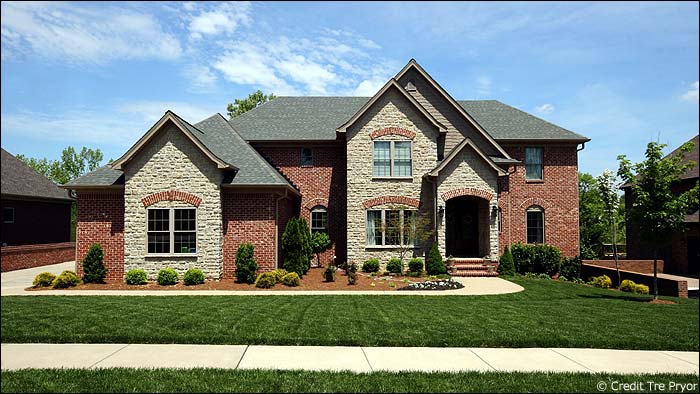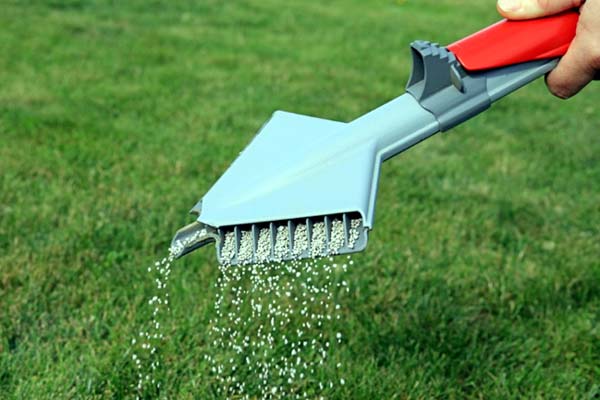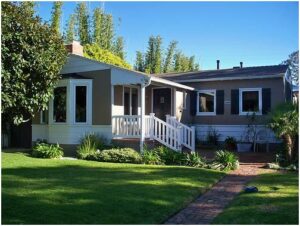Kentucky has always been in the middle — not quite south, not quite west, not quite hot or cold — and that can make it hard for residents of Louisville to understand exactly how they should care for their homes. When there is relatively mild weather year-round, when is a Louisville homeowner supposed to schedule service to their HVAC or repaint the exterior of their house? Today we’re looking at how to make Louisville lawn care a simple process that will have you truly enjoying your outdoor space.

Read on for tips on how to manage a lawn anywhere in Kentucky, but especially in Louisville.
Know Your Soil and Your Grass
Kentucky is dominated by Crider soil — the state soil — which is famously fertile, ideal for pastureland and crops. Grass grows gloriously in Crider soil because of its moderate moisture retention and abundance of nutrients.
Unfortunately, Kentucky is also home to a few other types of soil, including gravelly Baxter soil and crumbly Maury soil, which, while still fertile, is not as advantageous for lawns. Plus, even Crider soil can get exhausted over time, changing its composition in various ways.
That’s why all Louisville homeowners should have their soil tested to better understand its condition. Then, knowing the drainage capabilities, pH level, and present nutrients in their soil, homeowners can choose the exact right grass variety for easy care.
Speaking of grass variety, there are two major categories for Louisville homeowners to choose from: cool-season lawns and warm-season lawns. Because Kentucky is in the middle climate-wise, homeowners can usually find some success with either type of lawn but greater success with a hybrid variety that combines warm- and cool-season seed. Then, grass will flourish from spring through fall, and homeowners can enjoy their lawns as long as the nice weather holds.
Water Wisely Year-round
Regardless of where they are, homeowners often get lawn watering wrong. The truth is that grass doesn’t need water every day; in fact, watering small amounts every day is a good way to create a weak, dehydrated lawn.
A surprising amount of water evaporates, meaning watering only slightly will result in little water reaching the roots, causing the roots to grow shallowly and increasing their likelihood of drying out or succumbing to pests or disease.
Instead, homeowners should strive to water at most twice a week, giving the grass a long, deep drink each time. The best time of day to water is mid-morning when the sun isn’t hot or bright enough to evaporate a significant amount of water, but it also won’t allow excess water to drown the grass. Waterings should continue through the winter, with the only exception being the few days a year when snow falls in Louisville.
Add Fertilizer Twice Per Year

Warm-season grasses prefer to be fertilized at the beginning of their growth period, in mid-to late-spring, but cool-season grasses do best with late-fall fertilizing, to help them survive the harsh winter. Because most Louisville lawns are a combination of warm- and cool-season varieties, Louisville homeowners need to fertilize twice as much.
Fertilizing is pretty straightforward. The fertilizer needs to be spread perfectly evenly across the lawn to prevent burning some patches of grass with excess nutrients or skipping areas entirely. Different types of fertilizer need to be used at different times of the year. I take advantage of a lawn care service near me for biannual lawn fertilization to ensure I’m doing it right, and I encourage other Louisville homeowners to do the same.
Remove Debris Without a Rake
Rakes are the must-have yard care tool — except on grass. Rakes tend to remove the thatch beneath grass’s leaves, and that thatch is necessary for protecting the roots from infestation, retaining moisture in the soil, and moderate temperatures during summer and winter. Still, homeowners don’t want debris to pile up on their lawns because that debris can compact into the soil, prohibiting growth.
One of the most essential tools for Louisville lawn care is a leaf blower, which will quickly and effortlessly remove leaf litter and other yard debris without harming the grass. The best leaf blowers are handheld, lightweight, and gas-powered, but expensive electric models work well, too.
Caring for your Louisville lawn isn’t all that different from lawn care in other parts of the world — homeowners still need to water, fertilize and mow their lawns on a schedule. Knowing more about one’s lawn is key to caring for it properly, so homeowners incapable of devoting the proper time and effort to their lawns should consider hiring local lawn care professionals to keep their grass in perfect health.



